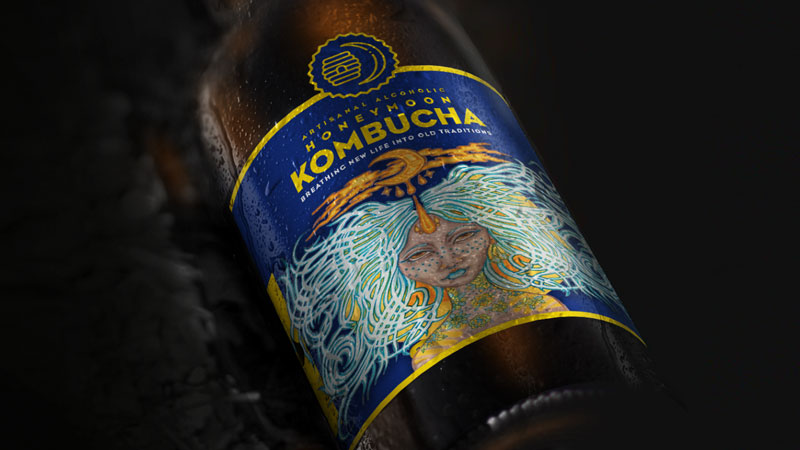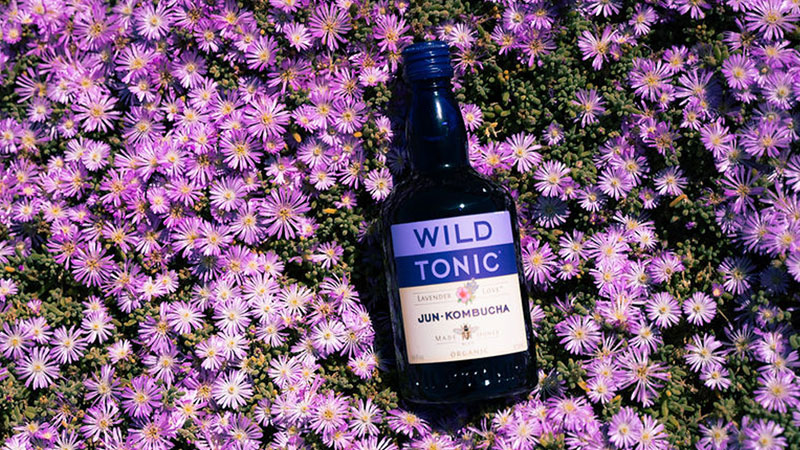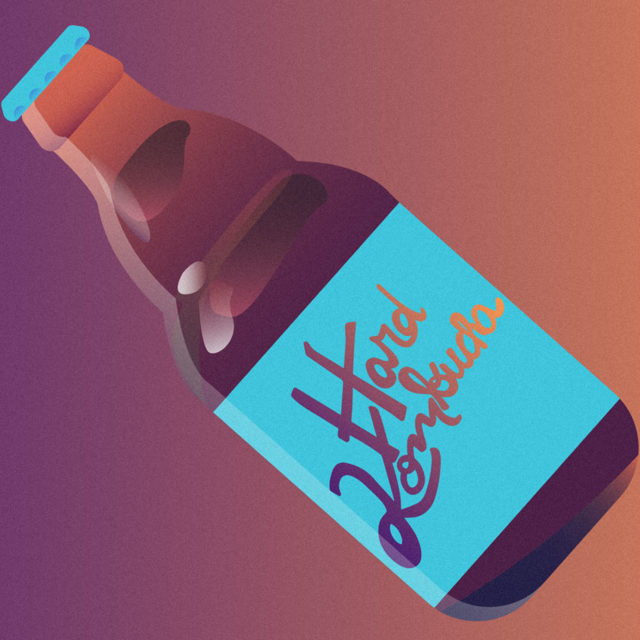Ayla Bystrom-Williams’ brewery doesn’t make beer, and she’s O.K. with that.
Bystrom-Williams is the founder and CEO of HoneyMoon Brewery, a Santa Fe, N.M., hard kombucha operation that opened in December 2018. “At the current moment, [the FDA] doesn’t know how to classify hard kombucha, which is why we’re called a brewery,” Bystrom-Williams tells curious first-time visitors. The discrepancy “confuses people.”

Holly Lyman understands. The “Queen Bee” of Wild Tonic, a hard kombucha made in Cottonwood, Ariz., says it took her approximately two years to get her honey-based formulations approved by the TTB.
“It was a very difficult process because they didn’t know where to put us in the beginning,” she recalls. “I was literally the second hard kombucha brewery in the country. We’re classified as a beer, but it depends on how you make your kombucha. They can put you in the wine category or spirits category — it all depends on your formulation.”
Complications with FDA and TTB regulations add to the confusion. Wild Tonic doesn’t contain hops or grains like a conventional beer, and yet the FDA classifies it as a gluten-free beer “because sugar is a beer fermentable,” Lyman says.
“All new hard kombuchas that are now entering the market must have their formulations approved by the TTB,” Lyman explains, but the FDA oversees anything it considers gluten-free beer. “Eventually the FDA will catch onto this oversight, or a concerned consumer group will take action, but currently, there are many brands on the market that are not compliant with the labeling laws.”
Maybe we shouldn’t be surprised kombucha is having an identity crisis among federal agencies. Although it has a long history in Eastern Europe and Asia, non-alcoholic kombucha is a relatively recent addition to American supermarkets. Many consumers aren’t clear on what exactly hard kombucha is, or how it differs from the non-alcoholic stuff.
To make all kinds of kombucha, you brew tea and sugar, then leave it to ferment with a symbiotic culture of bacteria and yeast (SCOBY), which produces tangy, fizzy kombucha. If enough sugars ferment, they can yield alcohol.
According to a report by Grand View Research, the global kombucha market size was valued at $760.0 million in 2016, and is expected to grow by 23 percent through 2025. “This market is projected to be driven by rising product innovations, flavor experimentation, and consumer awareness about health benefits associated with the product,” the report reads.
Cory Comstock, CEO of KYLA Hard Kombucha, believes “consumers are increasingly more health-conscious and seeking beverages that fit their health and wellness lifestyles. You see this reflected in the rapid growth of both hard kombuchas and hard seltzers. Four current trends in the alcohol space are low-cal, gluten-free, craft, and low-alcohol.”
These trends, coupled with regulations that misleadingly label hard kombucha, aren’t lost on Big Beer.
“In my conversations with larger beer companies in the networking that we’ve done and the competitions that we’ve won, I think the larger craft beer companies and general American beer companies like Coors and Anheuser-Busch are anticipating that 30 percent of the craft beer drinking market is going to start looking for alternatives to higher ABV products — low-calorie, low-ABV or health-oriented alcohol drinks,” Bystrom-Williams says. It’s a reflection of how current consumers are more health-conscious than those in the past.
So, is hard kombucha good for your health? “I definitely would not say that, and we try super hard not to say that,” Bystrom-Williams quickly adds. “There’s just no way to ever say ethanol is good for you. … Essentially, the only thing that people need to know is that it’s an alternative to beer, wine, ciders, and spirits. There are traces of caffeine and B vitamins from the tea. There’s all sorts of crazy sh*t you won’t find in other drinks.”
Take 100-calorie KYLA. It’s brewed and naturally fermented to 4.5 percent ABV, has live cultures from SCOBY, consists of 2 or fewer grams of carbohydrates, and is gluten-free and vegan.
Wild Tonic works with Jun, a honey-based kombucha, and is 99 percent organic.
“Sixty-seven percent of all millennials drink kombucha. The health benefits of the non-alcohol variety are something that keeps people drinking it,” Lyman says. Hard kombucha, meanwhile, has “no gluten, it’s low-cal, no sulfites, [I] don’t get that headache or hangover. It’s just a very different experience for alcohol.”

Three Hard Kombuchas to Try
HoneyMoon Brewery. Look for Pearsephone, a refreshing flavor that combines elderflowers and pears in tribute to New Mexico’s fruits and flowers.
KYLA Hard Kombucha. The effervescent Hibiscus Lime is bright and spritzy.
Wild Tonic. If you want to kick things up a notch, Lyman recommends making a Wild Mule cocktail with Wild Tonic’s Mango Ginger flavor and a shot of Tito’s Handmade Vodka.
